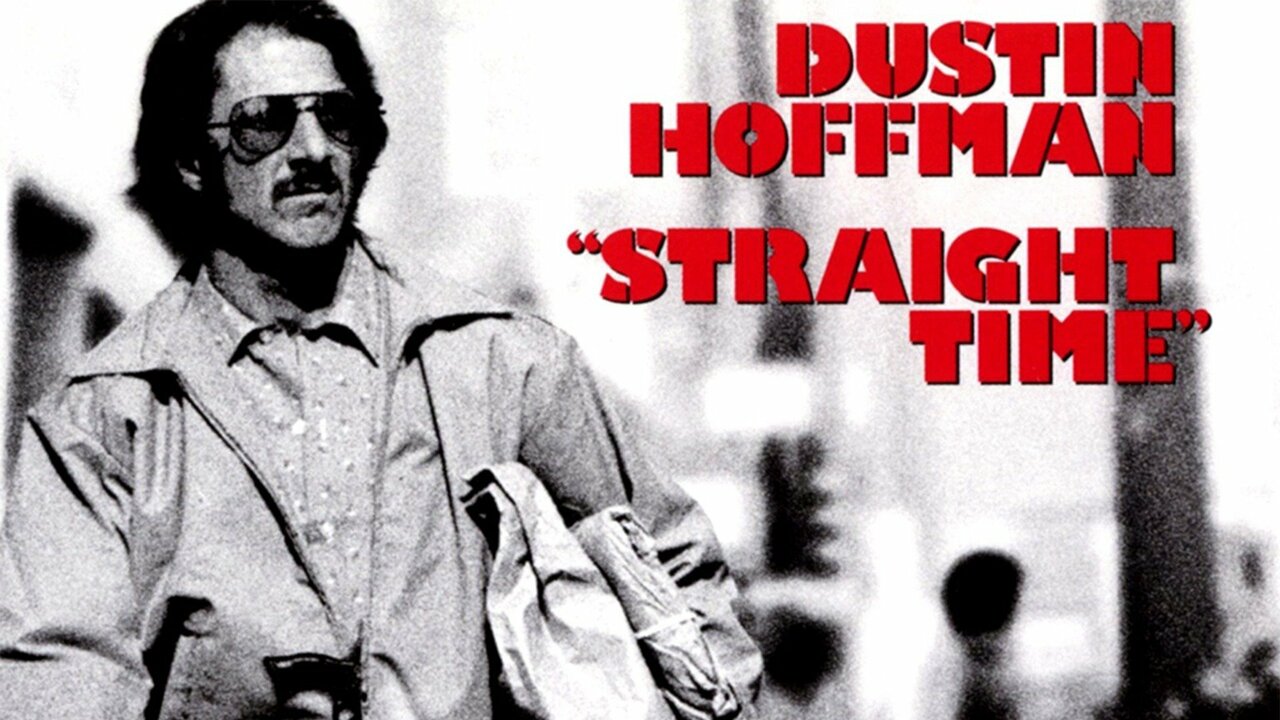
Straight Time is a crime drama film released in 1978, directed by Ulu Grosbard and starring Dustin Hoffman. The movie tells the gripping story of Max Dembo, a career criminal recently released from prison who struggles to reintegrate into society. Straight Time is known for its realistic portrayal of the criminal justice system and the harsh realities faced by ex-convicts.
In this article, we will delve into 46 fascinating facts about the movie Straight Time, shedding light on its production, cast, critical reception, and impact on the crime genre. From the development process to the memorable performances, this article aims to provide an in-depth look at one of the often overlooked gems in the realm of cinematic crime dramas.
Key Takeaways:
- “Straight Time” is a 1978 crime drama film based on the novel “No Beast So Fierce” by Edward Bunker, featuring Dustin Hoffman and exploring themes of redemption and the challenges of leaving a life of crime.
- The movie delves into the struggles of ex-convicts reentering society, the complexities of masculinity, and the impact of institutionalization, making it a must-watch for fans of thought-provoking cinema.
Straight Time was released in 1978.
Straight Time, a crime drama film directed by Ulu Grosbard, made its debut in 1978, captivating audiences with its intense and gritty storyline.
The movie is based on the novel “No Beast So Fierce” by Edward Bunker.
Edward Bunker, a former criminal turned writer, penned the novel “No Beast So Fierce,” which served as the inspiration for the film’s screenplay.
Dustin Hoffman played the lead role.
The legendary Dustin Hoffman took on the role of Max Dembo, a career criminal who struggles to adapt to life outside of prison.
The film explores themes of redemption and the difficulty of breaking free from the cycle of crime.
Straight Time delves deep into the emotional journey of its protagonist, highlighting the challenges and temptations that come with trying to leave a life of crime behind.
It boasts a stellar ensemble cast.
In addition to Dustin Hoffman, the film features impressive performances from Theresa Russell, Gary Busey, Harry Dean Stanton, and M. Emmet Walsh.
Straight Time received critical acclaim.
The film was praised by critics for its realistic portrayal of the criminal underworld and its exploration of complex human emotions.
The screenplay was co-written by Edward Bunker himself.
Bunker, having experienced the criminal lifestyle firsthand, brought his unique insight and perspective to the script, making it all the more authentic.
Straight Time is known for its intense and suspenseful moments.
The film brilliantly builds tension, keeping viewers on the edge of their seats throughout its gripping narrative.
It tackles the challenges faced by ex-convicts reentering society.
Straight Time sheds light on the difficulties ex-prisoners encounter when trying to rebuild their lives and reintegrate into society.
The movie showcases the struggles of maintaining relationships after a life of crime.
Max Dembo’s attempts to connect with his former girlfriend and establish new relationships are filled with obstacles and emotional turmoil.
Straight Time provides a realistic portrayal of the criminal justice system.
The film delves into the complexities and flaws of the system, shedding light on the harsh realities faced by those within it.
It explores the darker side of human nature.
Straight Time delves into the depths of the human psyche, examining the motivations and actions of its characters.
The movie’s soundtrack enhances the atmospheric intensity.
The haunting and evocative soundtrack complements the film’s mood, further immersing viewers in its world.
Straight Time offers gritty and realistic visuals.
The cinematography captures the starkness and grit of the urban setting, adding to the film’s authenticity.
The film highlights the cycle of violence and the consequences it brings.
Straight Time serves as a cautionary tale, depicting the destructive nature of violence and the impact it has on individuals and society.
It exposes the vulnerabilities and insecurities of its characters.
The film humanizes its characters, showcasing their struggles, fears, and aspirations, making them relatable to viewers.
Straight Time was not a box office success.
Despite its critical acclaim, the film did not perform well commercially, perhaps due to its dark and uncompromising subject matter.
The movie has gained a cult following over the years.
Straight Time’s reputation has grown over time, attracting a dedicated fan base that appreciates its artistic merits and powerful storytelling.
Straight Time explores the complexities of masculinity.
The film delves into the traditional notions of masculinity and dissects the societal pressures placed on men.
It showcases the talents of director Ulu Grosbard.
Grosbard’s skillful direction brings the story to life, capturing both the gritty realism and emotional depth of the narrative.
The movie portrays the desperation of marginalized individuals.
Straight Time sheds light on the struggles faced by those on the fringes of society, exploring themes of desperation and survival.
It offers a nuanced portrayal of the criminal underworld.
Straight Time avoids sensationalism, providing a realistic and layered depiction of the criminal underworld and its inhabitants.
The performances in Straight Time are lauded by critics.
Dustin Hoffman’s portrayal of Max Dembo and the supporting cast’s performances have been praised for their authenticity and depth.
Straight Time was influenced by classic crime films.
The film pays homage to classic crime movies while adding its own unique twist and perspective.
It delves into the psychology of its characters.
Straight Time explores the motivations, traumas, and complexities that drive its characters’ actions, making them multi-dimensional and compelling.
The movie addresses the impact of institutionalization.
Straight Time examines the effects of long-term incarceration on individuals and their ability to adapt to life outside prison walls.
It highlights the lack of resources and support for ex-prisoners.
The film sheds light on the challenges faced by ex-convicts in finding employment, housing, and assistance upon release.
Straight Time reflects societal issues of the era.
The film serves as a commentary on the social and political climate of its time, addressing issues such as poverty, crime, and inequality.
The movie explores the thin line between right and wrong.
Straight Time challenges the conventional notions of morality and blurs the boundaries between good and evil.
It captures the desperation of characters seeking a second chance.
Straight Time portrays the yearning for redemption and the lengths individuals will go to in their pursuit of a fresh start.
Straight Time features realistic and authentic dialogue.
The dialogue in the film rings true, adding depth and believability to the characters and their interactions.
The movie depicts the struggles of breaking free from societal constraints.
Straight Time examines the challenges faced by its characters as they try to defy societal norms and carve their own paths.
It offers a nuanced exploration of power dynamics.
Straight Time delves into the intricate power dynamics within the criminal underworld, highlighting the influence and control certain individuals possess.
The film is a character-driven story.
Straight Time focuses on its characters’ motivations, growth, and inner conflicts, making it a compelling character study.
It showcases the talent of cinematographer Owen Roizman.
Roizman’s cinematography captures the mood and atmosphere of the film, enhancing its visual impact.
Straight Time provides social commentary on the justice system.
The film raises questions about fairness, reintegration, and the flaws within the criminal justice system.
The movie features an engaging and suspenseful narrative.
The gripping storyline of Straight Time keeps viewers engrossed from start to finish, leaving them on the edge of their seats.
It offers thought-provoking themes for discussion.
Straight Time explores complex subjects such as identity, morality, and the cyclical nature of crime, providing ample material for in-depth analysis and conversation.
Straight Time presents an unflinching look at the consequences of one’s actions.
The film explores the repercussions of choices made by its characters, highlighting the lasting impacts they have on their own lives and those around them.
The movie showcases the talent of editor Sam O’Steen.
O’Steen’s editing expertise enhances the pacing and rhythm of Straight Time, creating a seamless and compelling viewing experience.
Straight Time challenges traditional notions of rehabilitation.
The film raises questions about the effectiveness of rehabilitation programs and the societal expectations placed upon individuals seeking redemption.
It depicts the allure and dangers of the criminal lifestyle.
Straight Time explores the seductive nature of crime and the temptations that can pull individuals back into a life of wrongdoing.
The movie emphasizes the importance of second chances.
Straight Time advocates for the belief that individuals deserve an opportunity to redeem themselves and rebuild their lives, irrespective of their past mistakes.
It portrays the complexity of human relationships.
Straight Time delves into the intricacies of human connection, showcasing the bonds formed, broken, and tested throughout the narrative.
The movie provides social commentary on societal biases and prejudices.
Straight Time examines the stereotypes and prejudices faced by ex-convicts, shedding light on the barriers they encounter in their quest for acceptance.
Straight Time is a must-watch for fans of thought-provoking cinema.
This gripping and poignant film offers a deep exploration of the human condition, leaving viewers with profound questions and insights long after the credits roll.
Conclusion
With its gritty portrayal of the criminal justice system and a stellar performance by Dustin Hoffman, “Straight Time” remains a classic crime drama that is not to be missed. The film’s exploration of the complexities of reintegration into society and the limits of personal redemption make it a thought-provoking and emotionally engaging watch.
From its gripping storyline to its well-crafted characters, “Straight Time” stands as a testament to the power of great storytelling in cinema. The movie keeps viewers on the edge of their seats, balancing intense action with poignant moments of introspection.
Whether you’re a fan of crime dramas or simply appreciate captivating performances, “Straight Time” delivers on all fronts. It serves as a reminder of the talent and versatility of Dustin Hoffman as an actor and showcases the skill of the filmmakers in bringing a compelling story to life.
Don’t miss the opportunity to experience the raw emotions and powerful storytelling that “Straight Time” has to offer. It’s a film that will leave a lasting impact and spark discussions long after the credits roll.
FAQs
Q: Who directed “Straight Time”?
A: “Straight Time” was directed by Ulu Grosbard.
Q: When was the movie “Straight Time” released?
A: “Straight Time” was released on March 18, 1978.
Q: What is the genre of “Straight Time”?
A: “Straight Time” is a crime drama film.
Q: Who stars in “Straight Time”?
A: The lead role in “Straight Time” is played by Dustin Hoffman, with supporting performances from Theresa Russell, Gary Busey, and Harry Dean Stanton.
Q: Is “Straight Time” based on a true story?
A: Yes, “Straight Time” is based on the novel “No Beast So Fierce” by Edward Bunker, who co-wrote the screenplay for the film.
Q: What is the runtime of “Straight Time”?
A: The runtime of “Straight Time” is approximately 114 minutes.
Q: Is “Straight Time” available for streaming?
A: Depending on your location and streaming service subscriptions, “Straight Time” may be available for streaming on platforms such as Netflix or Amazon Prime Video.
Q: Did “Straight Time” receive any awards or nominations?
A: While “Straight Time” didn’t receive major award recognition, it is widely regarded as a critically acclaimed film and was praised for its performances and storytelling.
Q: Can you recommend similar movies to “Straight Time”?
A: For fans of crime dramas, other films you may enjoy include “Heat,” “The French Connection,” “Dog Day Afternoon,” and “The Departed.
Was this page helpful?
Our commitment to delivering trustworthy and engaging content is at the heart of what we do. Each fact on our site is contributed by real users like you, bringing a wealth of diverse insights and information. To ensure the highest standards of accuracy and reliability, our dedicated editors meticulously review each submission. This process guarantees that the facts we share are not only fascinating but also credible. Trust in our commitment to quality and authenticity as you explore and learn with us.


